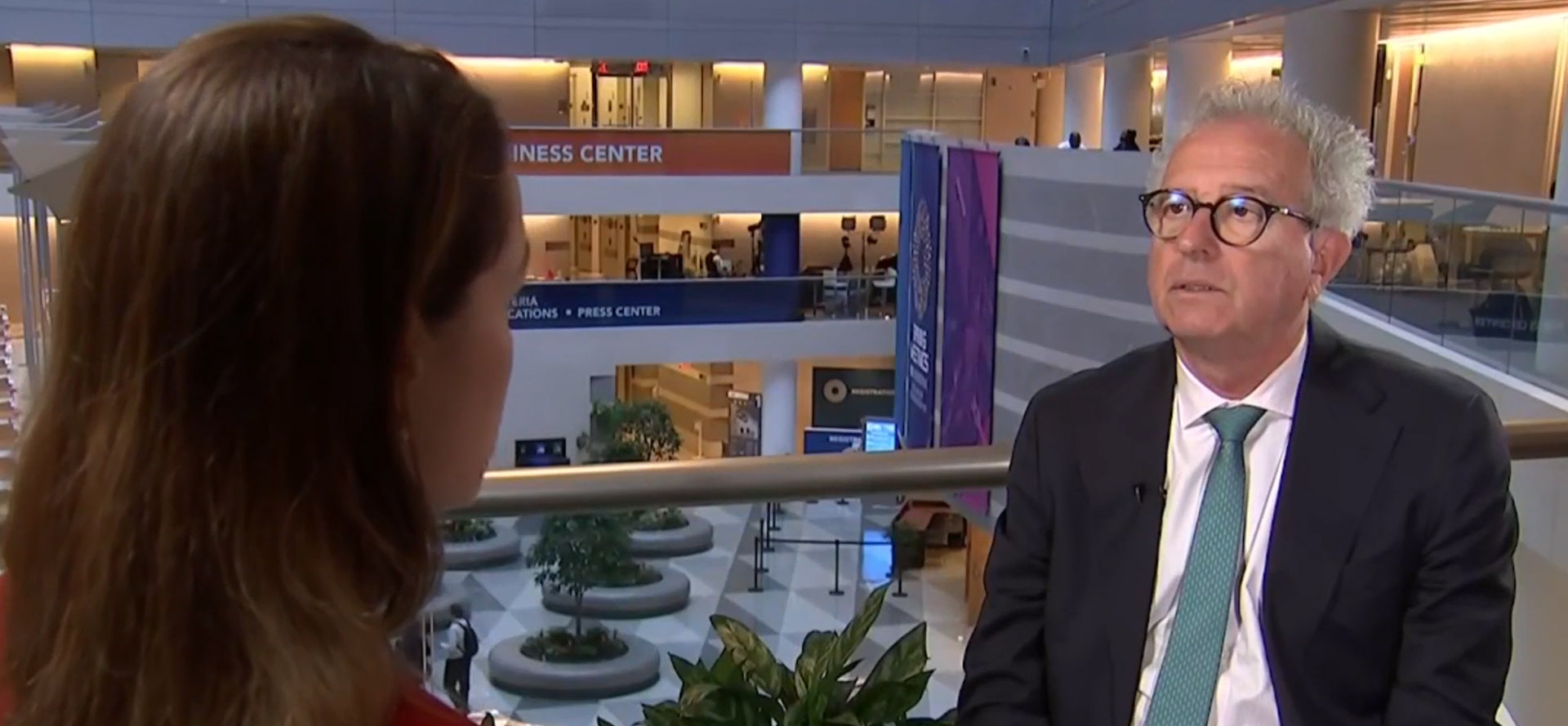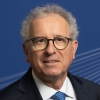Pierre Gramegna in interview with CNBC at IMF Spring Meetings in Washington DC

Transcript of interview with Pierre Gramegna, ESM Managing Director
CNBC International, 24 April 2025
Interviewer: Carolin Roth Language: English
CNBC: Europe is at a crossroads. Will it emerge stronger from this crisis?
Pierre Gramegna: Well, this is what traditionally happens. Jean Monnet said that Europe will grow in times of crisis. It has been proved true in all the last years, and I think it is happening right now also. I attend the Eurogroup meetings every month in Brussels. What is happening in many ways, the war in Ukraine, the change of the U.S. administration, I would say it's even more than a wake-up call.
We have to get our act together. There's a lot of things that we know we have to do. The Draghi report tells us what we have to do in the banking union and the Letta report tells us what you have to do in the savings and investments union. We know our homework, and I think we will be more committed to achieve what has to be done in a fast manner.
Europe knows what to do. There have been numerous reports, as you say, but now it really has been kicked into action. Do you think the sense that the political willingness and the urgency of it is greater than ever before?
It is certainly greater. There is also some realisation that if we do not help ourselves - and the rest of the world is not going to help us - we are very worried about less drive for multilateralism, to say the least. In fact, it's a fragmentation of the geopolitical world and economic and financial setups that we have known since World War II.
Europe is a champion of international cooperation. So, this is being questioned. I must say that hearing the Secretary of Treasury yesterday say that the United States is going to remain engaged in the International Monetary Fund and the World Bank is reassuring, and that's what we were hoping to hear. There are going to be changes, but it's not a departure from them
So, in a time where we have so many geopolitical conflicts and wars around the world, we need international cooperation. So, Europe is very eager to pursue that.
Now, you've also, in the past, said Europe needs more strategic autonomy, and that could also, of course, come through the form of a digital euro. Why is that needed more than ever before?
There's been an evolution in the last couple of months in the position of the United States that is more favourable to either cryptocurrency or stablecoins. A lot is going to happen in that area.
Today, cryptocurrencies represent less than 2% [of global financial assets], so you can treat it with benign neglect, as central banks used to say. But, at the ESM, we fully support the drive of Christine Lagarde and the European Central Bank to have a digital euro that is backed by the [European] central bank, which gives the confidence that we need.
If these initiatives pushing currencies - digital currencies coming from the private sector - would become more prevalent, obviously, it could have an impact on our European sovereignty, in terms of currency, and would also impact financial policies, policies as we know them.
Can I ask you about the role of the ESM? Obviously, it was created in the aftermath of the euro area debt crisis, a very powerful tool. You're essentially the lender of last resort. What role will it now play, based on the brutal report, in a European Defence Mechanism? And there are certain challenges to that; the likes of Germany and the Netherlands said, you need to stick to your original purpose.
Well, we always stick to our original purpose, which is to be ready to support and assist countries when there are risks to financial instability. Financial instability can also be contagious. We will always stick to our mandate. In the pandemic, a special instrument was set up. It was not used, but it was set up, because we were all afraid in Europe that with the lockdown, we could have financial instability.
Now, a lot of countries have to invest a lot more in defence, and they do not have the fiscal space to do it. The first thing is that countries know that if they were to get in trouble, the ESM would be there. That's the first thing, our mere existence. Both the Letta report and the European Commission have mentioned the ESM as a potential player in this issue [defence].
The Letta report suggests a precautionary loan, as we did during the pandemic. The European Commission, which has a SAFE [Security Action for Europe] program of €150 billion, says that if this would not enough for defence purposes, the ESM could come in, which is exactly the role we have, to come in as lender of last resort.
Can I ask you, as you're engaging in talks over the next couple of days, what is your message to the American colleagues?
The main message is: we need international cooperation, and a tariff war is bad for growth and very bad for inflation. We've seen it after the announcement of President Trump on the second of April. We have seen some relief when the announcement came that there would be a pause for negotiation. I would like to commend the European Union Commission for being very measured and proportionate in its response, trying not to escalate the situation.
What we need is a dialog and to find concrete solutions. Having a trade war is detrimental to all, and it has hit the United States growth more, as we see in the IMF forecasts, than it has even hit Europe. Forecasts have been revised down due to these uncertainties, on the one hand, and the risks that trade slowdown are putting on the world economy.
Author

Contacts


